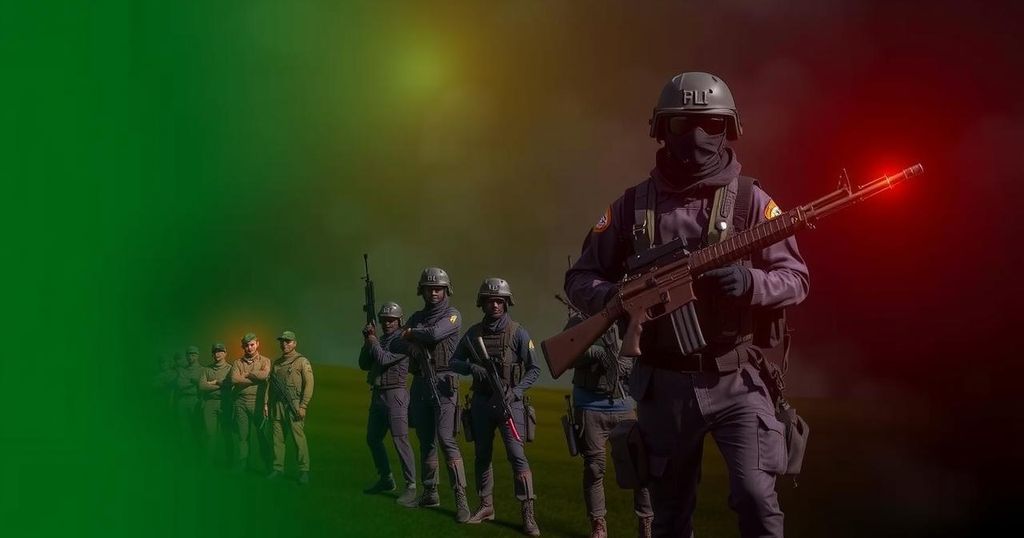Human Rights Watch has reported that Sudanese refugees in Ethiopia are at grave risk due to violence and insecurity. Recent conflicts between Ethiopian military forces and Fano militias have heightened the dangers for these refugees, who are facing violence, abduction, and forced labor. The closure of camps and ongoing protests underscore the urgent need for better protection and humanitarian assistance for these individuals.
Human Rights Watch (HRW) recently reported that Sudanese refugees in Ethiopia, particularly in the Amhara region, face severe risks due to ongoing violence and insecurity exacerbated by conflicts between Ethiopian government forces and Fano militias. The report underscores the alarming conditions for these refugees, who fled the conflicts in Sudan only to encounter further violence and abuses in Ethiopia. Since April 2023, numerous traumatic incidents have been documented, including violence, abduction, and forced labor against Sudanese refugees. Laetitia Bader, deputy Africa director at HRW, stated, “Sudanese refugees in Ethiopia have been the target of abuses for more than a year by various armed actors. These refugees fled horrific abuses at home and urgently need protection, not further threats to their lives.” The refugee camps, primarily located in the Amhara region, have become increasingly unsafe as tensions have risen between local communities and the Ethiopian military. A significant escalation occurred in August 2023, leading to widespread reports of violence against refugees, including robbery, assaults, and fatal attacks. The closure of the El Gedaref border crossing by Sudan on September 5, 2023, due to militia confrontations highlighted the urgent need for safe refuge. Refugees in camps like Awlala and Kumer have witnessed chaos and violence, with one resident describing how armed individuals traversed their camp, creating a palpable atmosphere of fear. Furthermore, protests over food shortages and demands for protection were reported, with refugees demonstrating against the precarious conditions in their camps. In July 2024, an attack by unidentified gunmen resulted in the deaths of ten federal police officers stationed at the Kumer camp, leaving the refugees vulnerable and without protection. The HRW report documented cases of forced labor in which militias coerced refugees into agricultural work, with at least 347 instances verified between 2023 and 2024. Refugees described harrowing encounters with armed individuals who extorted their valuables and threatened violence. As a response to the escalating danger, the UNHCR closed the Awlala and Kumer camps in July 2024, relocating refugees to the Aftit camp where conditions significantly deteriorated. Many refugees reported receiving subpar food rations and limited access to basic necessities, prompting ongoing fears of violence, especially in the context of conflicts between militia and military forces. The challenges intensified when refugees attempting to flee into Sudan were met with aggressive responses from Ethiopian security forces, often leading to forced separations of families. Despite claims from the Ethiopian government denying forced relocations and asserting a policy of zero tolerance towards refugee abuse, HRW emphasizes the need for better protection and secure relocation for refugees. Since the onset of the conflict in Sudan, Ethiopia has seen an influx of over 90,000 Sudanese refugees, intensifying the humanitarian crisis in the region.
The situation of Sudanese refugees in Ethiopia stems from the ongoing conflict in Sudan that began in April 2023, marked by violence and humanitarian crises, forcing thousands to flee to neighboring countries, including Ethiopia. The Amhara region, specifically, has grappled with internal tensions and conflicts between government forces and local militias, particularly the Fano militia, which has exacerbated the insecurities faced by refugees. The camps designated for refugees have become increasingly perilous due to reported abuses including violence and forced labor, creating an urgent need for international attention and humanitarian response.
In conclusion, the HRW report highlights an alarming and deteriorating situation for Sudanese refugees in Ethiopia, revealing patterns of violence, forced labor, and lack of adequate protection. The ongoing conflicts in the Amhara region create an unsafe environment for vulnerable populations seeking asylum. There is an urgent need for the Ethiopian government and humanitarian organizations to ensure the safety and basic rights of these refugees, addressing both immediate security threats and longer-term humanitarian needs.
Original Source: www.dabangasudan.org






